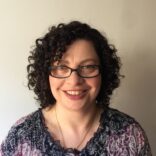We read with great interest Rabbi Naftali Rothenberg’s online Opinion piece, "Time To End The Reform-Orthodox Wars "(August 31). Rabbi Rothenberg is reacting to very real and very troubling elements of the reality of modern Jewish life that affect all of us in negative ways.
While understanding the need for bridges to cross the abyss that exist among the pluralities of serious modern Jewish expression, he worries that the depths of antipathy will make this nearly impossible.
Our collective experience would suggest otherwise.
Beginning in the spring of 2009, we, a group of rabbis from all denominations, gathered every few months in New York. We came together under the auspices of Clal and as part of the Rabbis Without Borders program. Each of us came from a distinct point of view and brought our own understanding of Judaism to the table. Even since our formal meetings concluded last June, we have remained in contact and conversation with each other. We have helped each other with sermons, we have supported each other through the challenges posed to us as rabbis, and most importantly, we have thought together about the future of the Jewish people.
And while we believe, as Rabbi Rothenberg suggests, that there is a need for Jewish leaders to move beyond the personal connection, we know that the personal connection is an essential part of the ability to move forward. Knowing each other as real people and not just perceptions is essential to building trust – the foundation on which bridges that can withstand disagreements can be built. As we got to know each other, our personal connections helped our group find ways to build a bridge strong enough for us all to stand upon.
Another essential element for building bridges is Torah study. Torah is the shared heritage upon which Jewish life is built. Our understanding and interpretations of Torah vary greatly, but we are joined in our commitment to study and understand this inheritance. Even as we move out in different directions in the world, our ability to return to a common place provides us with a framework for some examining our differences and commonalities. Indeed as we studied together we discovered that some of our differences and commonalities fell sometimes on expected lines – Orthodox with Orthodox, Reform with Reform – while others connections and disagreements broke down according to age or type of rabbinic work.
We do not want to suggest that this work is easy or without challenges. Even as we discussed how we might respond to Rabbi Rothenberg’s call we met with disagreements. But we know to expect these and do not imagine that our connections with each other demand uniform agreement. Beyond the personal connections with the Rabbis Without Borders program, the members of our group are themselves committed to working on building bridges in their own work as rabbis. We work in organizations with commitments to pluralism; we reach out beyond our congregations to work with other rabbis. We know from our experiences that much good can come if we do not expect others to accept all elements of who we are.
It is true that there are those who are politically and ideologically invested in not building bridges; but it is also true that there are places where the war between Reform and Orthodoxy has already been bridged.
Rabbi Ruth Abusch Magder on behalf of Clal’s Rabbis Without Borders Fellows 2009-10 (for a list of the Fellows see www.rabbiswithoutborders.org)
The New York Jewish Week brings you the stories behind the headlines, keeping you connected to Jewish life in New York. Help sustain the reporting you trust by donating today.





